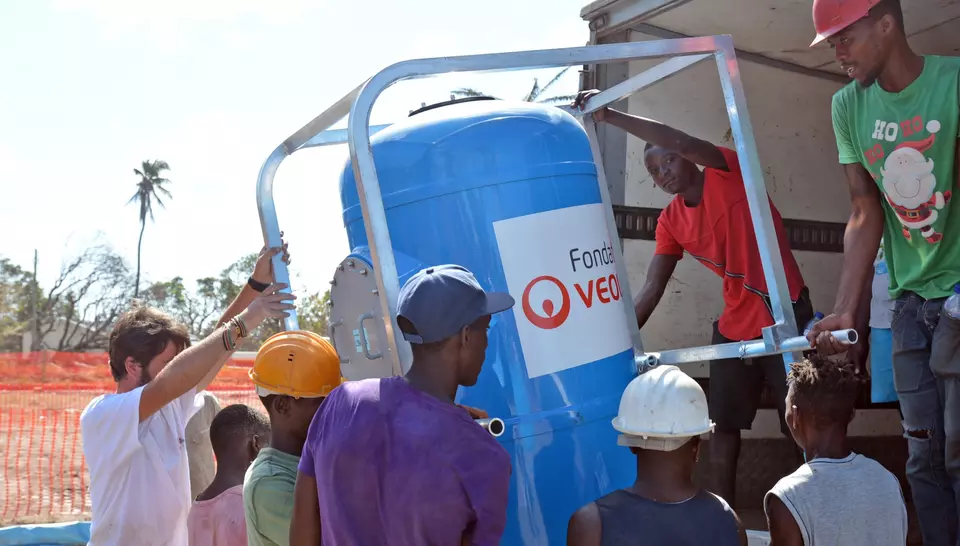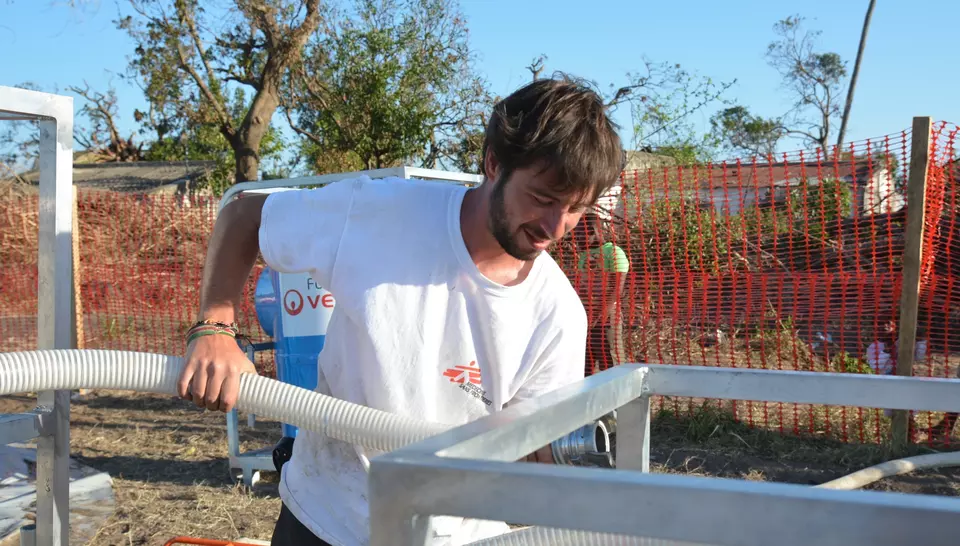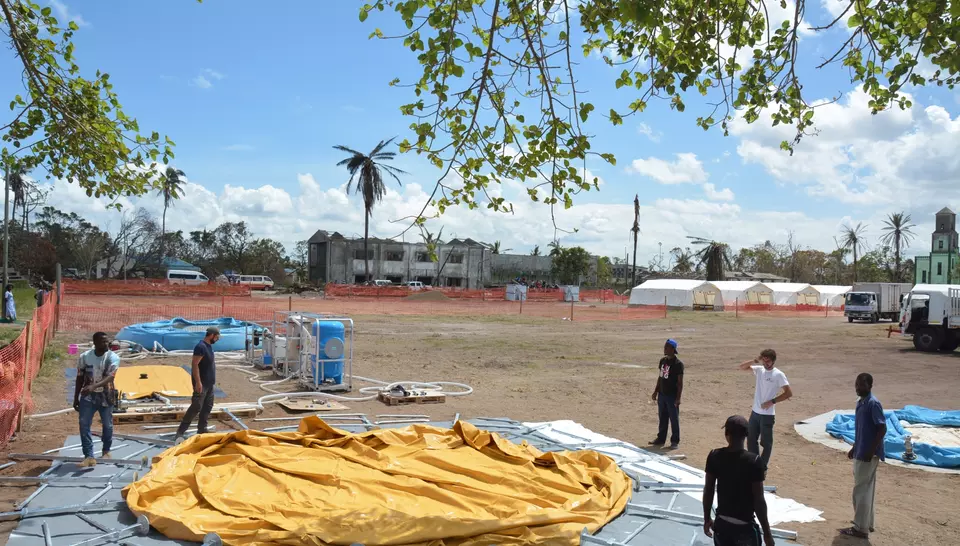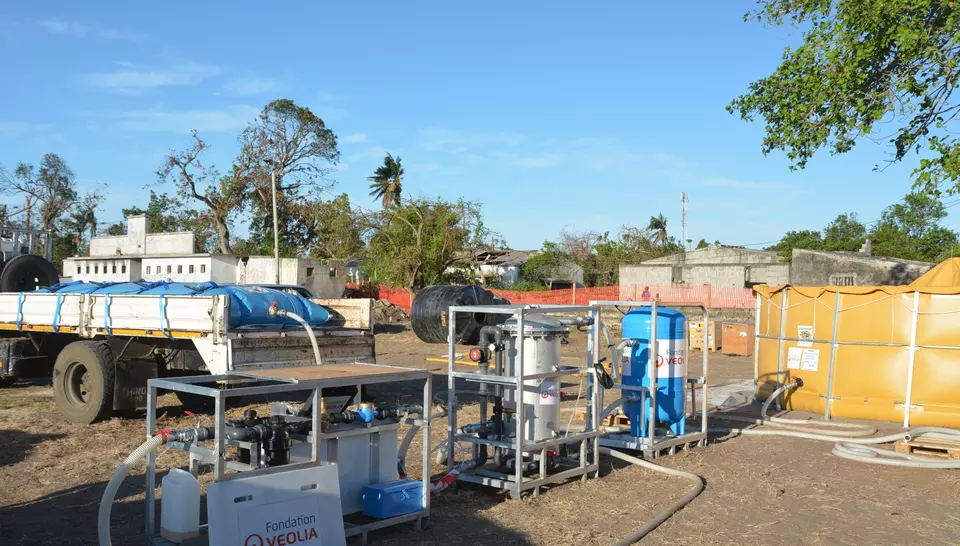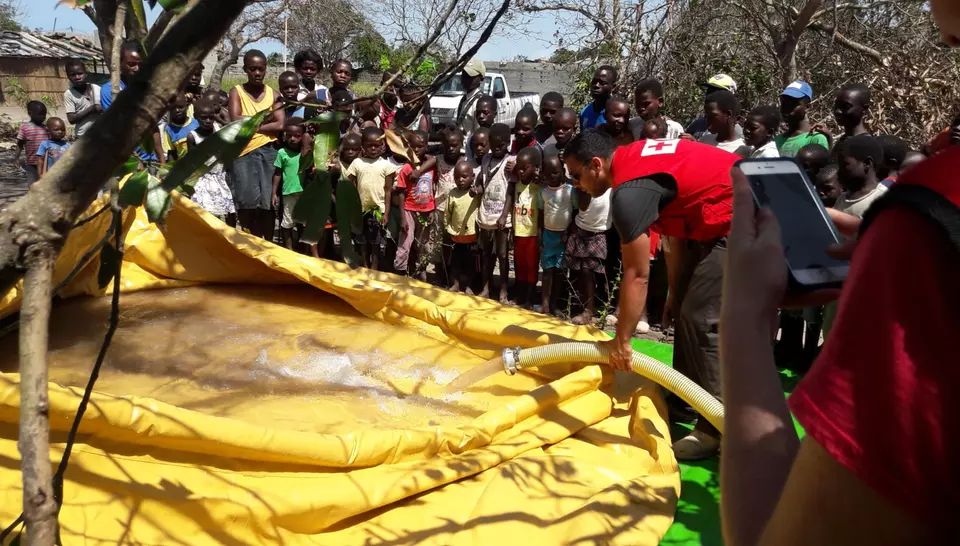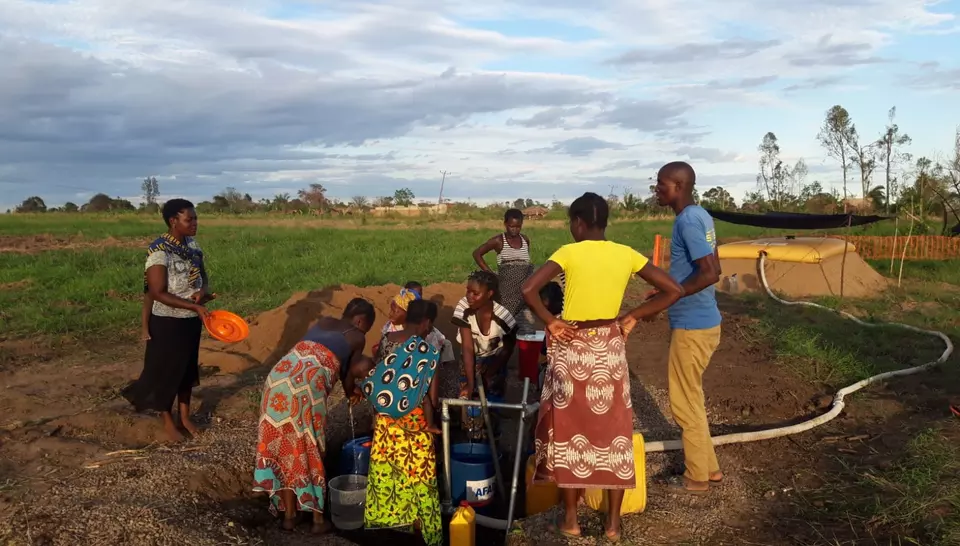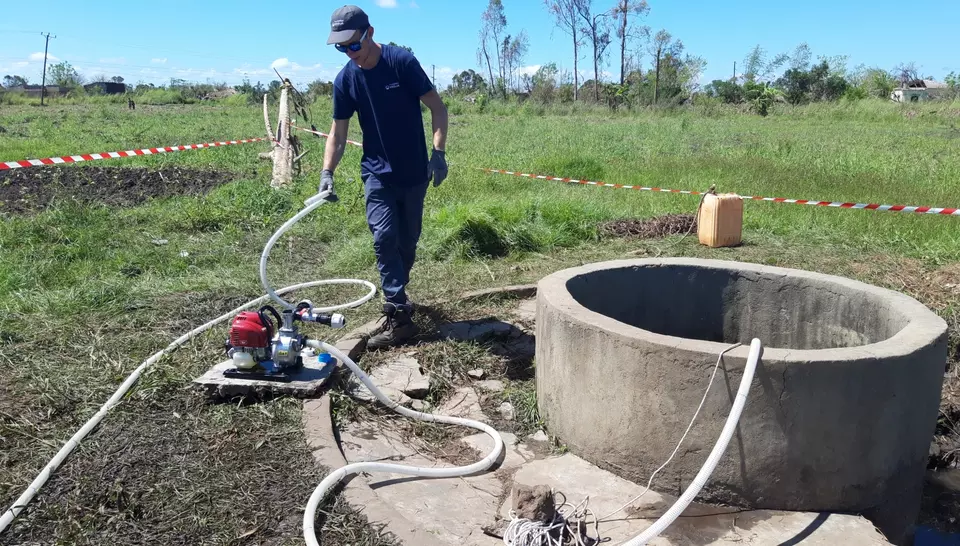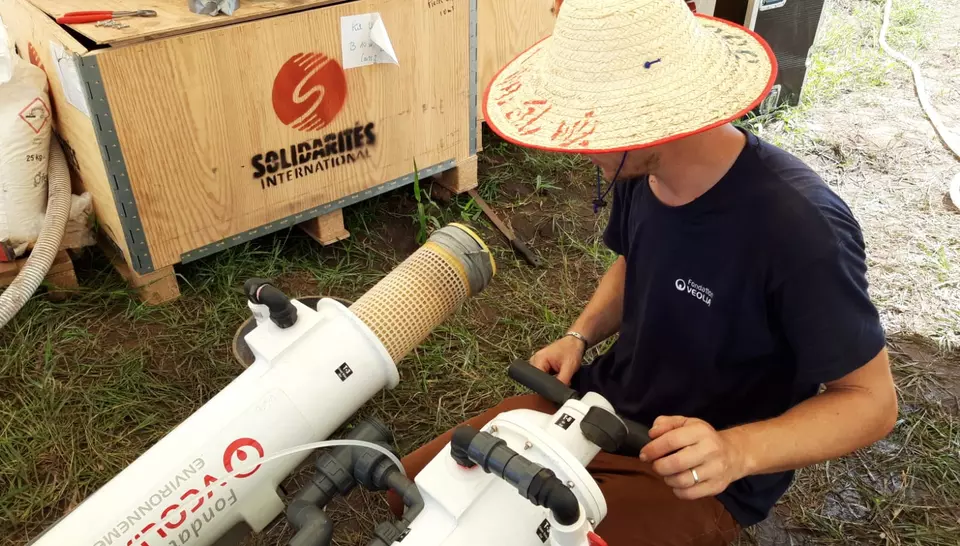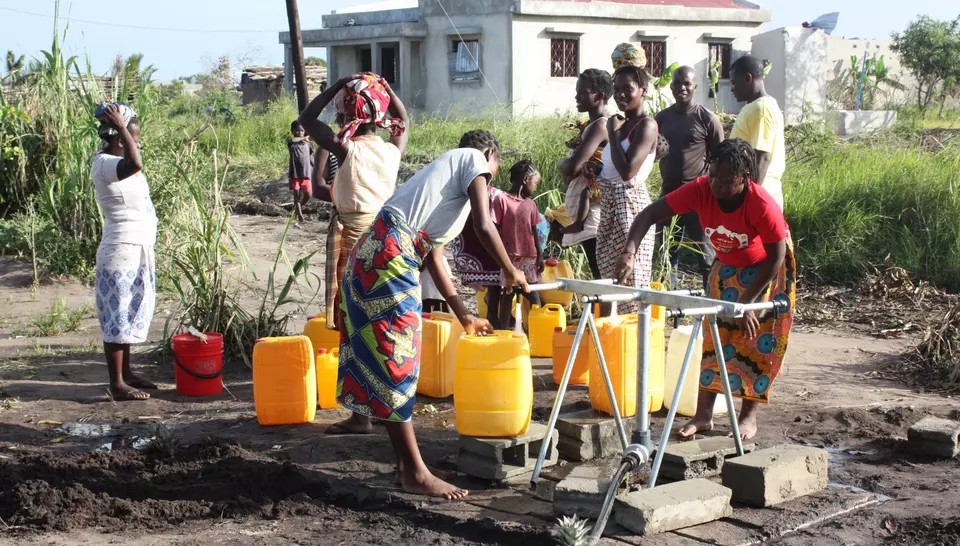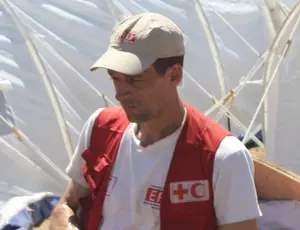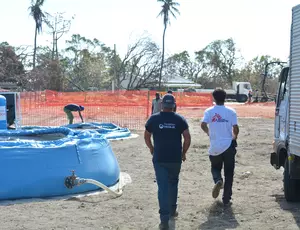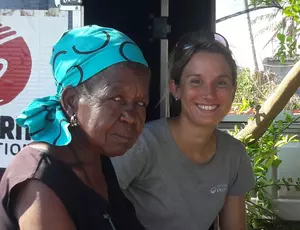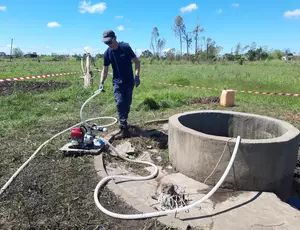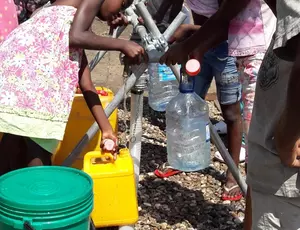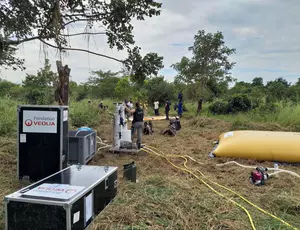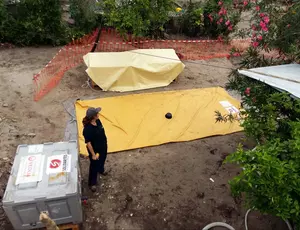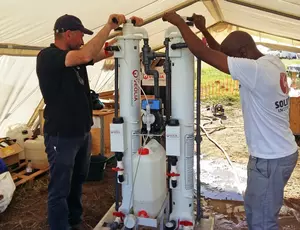Survivors who had taken refuge on the roof of their home or on the upper floors of neighbouring buildings, families perched in trees... Having made landfall on 14 March 2019, Cyclone Idai left behind a landscape of desolation in the Beira region - Beira is the country's second city and has a population of 500,000. Water levels rose by up to 11m, causing flooding and landslides, while 200kmph gusts of wind ripped off the sheets of corrugated iron used as roofing on many homes.
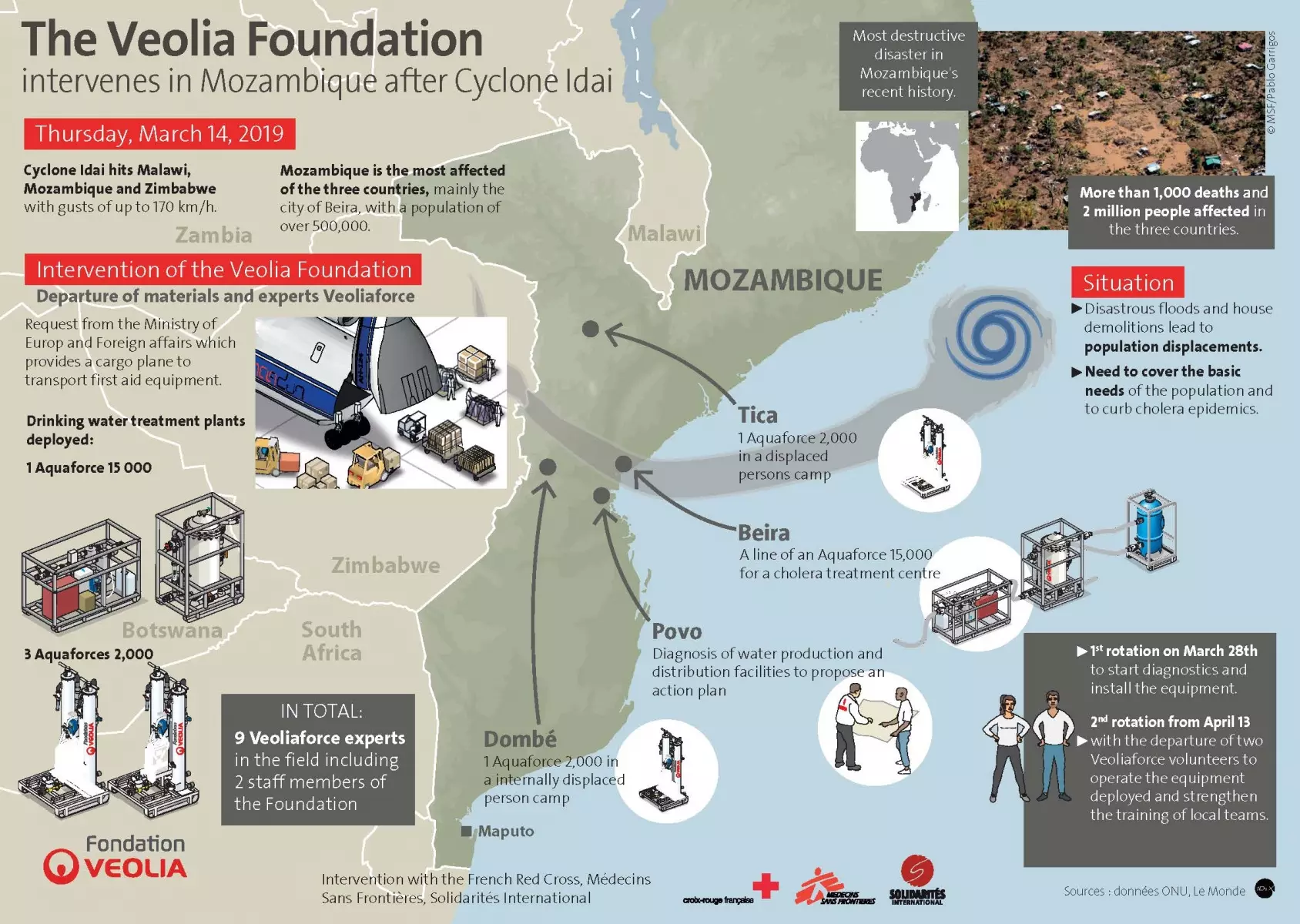
In the immediate aftermath the international community took action to meet the population's basic needs - emergency shelter, water, hygiene and sanitation to ease the worry about an outbreak of cholera occurring in a region already prone to waterborne diseases and affected by malaria. The Veolia Foundation was approached by the French Ministry for Foreign Affairs and rallied round. The foundation loaded mobile water purification units into the cargo plane provided by the Ministry for Europe and Foreign Affairs. 23 March saw the departure of a first Veoliaforce volunteer with French Red Cross ERU (Emergency Response Unit) training. The Veoliaforce volunteer travelled with the NGO to Mozambique.
A large number of humanitarian stakeholders converged on Beira with the city becoming the humanitarian aid coordination hub. MSF and Solidarités International, two of the Veolia Foundation's partners, were on the ground in the days following the disaster. They went on to host a dozen Veoliaforce experts tasked with deploying the Aquaforces - the mobile water purification units designed by the Veolia Foundation. The units were set up close to the local population and in the health centres opened shortly after the cyclone struck. The challenge was sizeable - cater for and hydrate the people with cholera who were starting to arrive in great numbers.
Whether in urban areas or in the most remote rural regions, the Veoliaforce experts most definitely had their hands full - they had to assess available water production methods, restore existing infrastructure, deploy the Aquaforces, optimise production, store the water produced, and install distribution systems.
A significant amount of training was also delivered - long-term access to drinking water needed to be secured after the departure of the Veolia Foundation volunteers. This was achieved by training a local team to take the helm. Local people were trained to operate the Aquaforces and were then entrusted with the controls so that they could produce drinking water independently.
Following several weeks on the ground, some of the humanitarian stakeholders withdrew and organised the handover to regional solidarity stakeholders. The Veolia Foundation's Veoliaforce assignment was over.
So what is a Veoliaforce volunteer?
An employee who is willing to travel anywhere in the world to help others by offering their experience and expertise, Veoliaforce volunteers undertake their work during their working hours. They provide their expertise in one of the group's business areas (Water, Energy or Waste) in post-disaster contexts or to sustainably improve the living conditions of the most deprived people. Working in conjunction with international humanitarian organisations, the Veolia Foundation sends its experts to provide emergency humanitarian aid and secure the sanitary environment in the event of a natural disaster, or alternatively to support projects to develop essential services.
Aquaforces
Aquaforces are mobile water treatment units designed by the Veolia Foundation's engineers. They are compatible with the inherent constraints of humanitarian emergency deployments. Several models have been developed to meet different needs. The Aquaforce 2,000 supplies drinking water for 2,000 people*, while the Aquaforce 15,000 can be split into two supply lines, producing water for 15,000 people.
---
* In line with WHO standards, i.e. 20l of water per person per day
Stories



